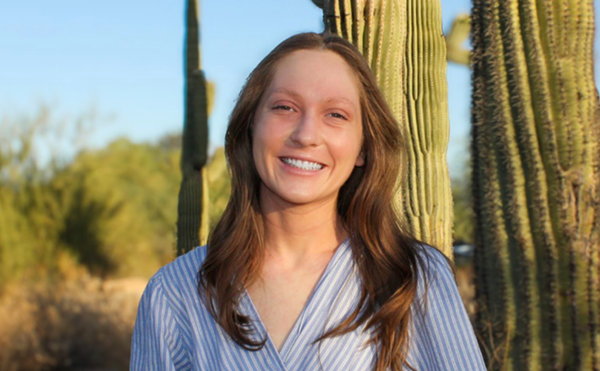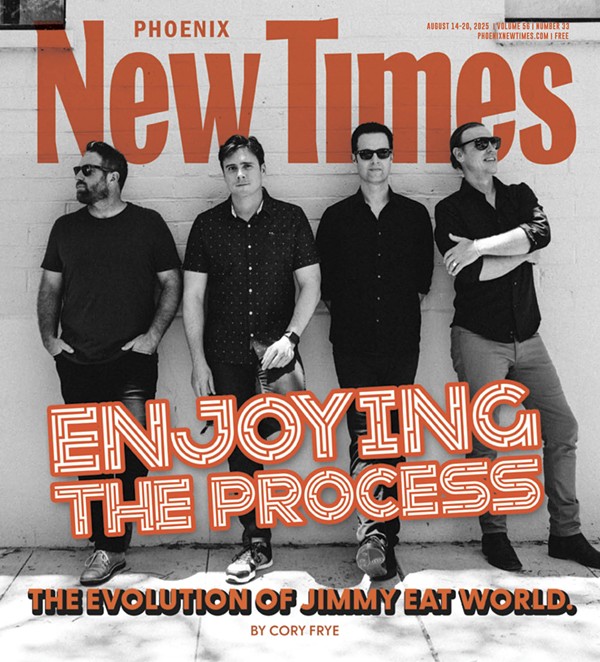The parents were in their 20s, so they hadn't bothered with the usual prenatal tests. It wasn't until after their little girl was born that the doctors realized something was seriously wrong, that an extra chromosome in her DNA would doom her to health problems and mental retardation.
So the parents injected the 3-day-old baby with a lethal cocktail. They were young. Surely a retarded child would be a difficult cross to bear. They could have other kids, kids who shouldn't be saddled with a special-needs sibling. Might as well kill this one and start over.
Hey, who could blame them?
Not Peter Singer.
In his 1985 book Should the Baby Live? The Problem of Handicapped Infants, the Australian-born philosopher writes that parents should have the right to kill a baby that's born disabled — and not just have the right to do it, but in some instances that disabled babies literally should be killed.
Let me be clear here. Singer's talking about killing babies after they've been born. He's written that parents should have the right to kill a child within 28 days of birth.
And if a family is inflicted with a senile relative, well, children ought to be allowed to kill feeble parents, too. Humanely, of course.
It is appalling in part because Singer, now a professor at Princeton University, is such a lucid writer. You could immediately dismiss his ideas as nonsense if some idiot were spouting them on the Internet, but when you read his actual words, they almost start to sound persuasive. It's only when you step back that you realize you're a step away from agreeing with Nazism. After all, the Nazis decreed some people "non-persons" for the good of the German state; Singer wants to decree some people "non-persons" to increase society's overall happiness. Even without the slippery slope, it's frightening.
So I was surprised to hear that Arizona State University is flying Peter Singer to campus for a lecture next week. And even more surprised when I heard the topic.
He's going to talk about conscientious food choices.
It's more than a bit ironic. Here's a guy who argues, in effect, that human rights are limited to certain humans. That the siblings of a child with Down syndrome would naturally be happier without a disabled family member, so it's worth killing Down syndrome newborns. That the happiness of some people matters more than the very survival of others.
Now he wants to tell us how to eat?
The answer, my friends, is yes. And we're going to pay him $20,000 for the privilege of listening.
It's never wise to put certain ideas off-limits. In some parts of Europe, it's illegal to deny the Holocaust; you only have to get online and Google "six million Jews" to see just how effective that policy has been in silencing the crazies. And then there's poor, stupid Brigitte Bardot, perpetually running her mouth about Arabs and perpetually getting hauled into court for it. Sorry, France, but you can't stop racism by outlawing it.
So I'm not upset about ASU's bringing in Peter Singer. He says he's going to donate the entire fee to Oxfam America, which certainly makes me feel better about where my tax dollars are going. And as much as I find his views repugnant, I think it's better to engage them than to ignore them.
The problem is that we're not going to get to engage Peter Singer.
At his free public lecture on Monday, Singer will be talking about his new book, The Ethics of What We Eat: Why Our Food Choices Matter, and the ASU students organizing the event tell me that questions will be limited to that topic during the session.
In other words, you can ask him about the rights of salmon, but not the rights of the retarded babies that Singer would like to see murdered.
Later, a hand-selected group of students and professors will meet with the philosopher in a smaller setting, and they'll be able to ask whatever they want — but that session won't be open to the public or any journalists.
In an e-mail, Singer tells me that he didn't ask for any such limits; he says he'd be happy to take questions on any topic. The limits were the decision of the event's organizers.
It's a mistake.
Without the infamy that he's earned, I doubt Peter Singer would have won his prestigious post at Princeton, much less command five-figure speaking fees at places like ASU. There are unemployed philosophers everywhere; Singer's horrible ideas about human life are the main reason he's achieved a measure of fame.
They also create a necessary framework for evaluating anything he says.
Michael Bérubé is a professor at Penn State University. Because of his thoughtful writing about disabled people, including a memoir about his own son, who has Down syndrome, he is often cast as a foil to Singer.
Earlier this year, Bérubé spoke at ASU, a talk that didn't come with requests to stay on topic. So I e-mailed him to get his thoughts about ASU's limiting the terms of the debate.
He says he can understand why the organizers would want to set limits. He recalls that after he gave a talk once on blogging, an audience member insisted on questioning him, at great length, about international politics.
But this is different, Bérubé wrote.
"In the first, my beliefs about the Middle East have literally nothing to do with blogging. In the second, well, I'm afraid that Singer's position on the ethics of eating animals is intimately related to his position on how to treat people with significant disabilities," he wrote.
In The Ethics of What We Eat, Singer argues that we can't place human rights above the rights of animals. He calls that idea "species-ist," saying that it's a form of prejudice.
Yet, in his earlier writings, as Bérubé notes, Singer seeks to limit which people have rights. If you're born disabled, you don't count.
But chickens do?
You have to spend only a few minutes with a child with Down syndrome to see just how silly that idea is. These are children who tell jokes and laugh at others, who feel love and share it, who "get" a lot more than Singer gives them credit for. When they get to be teenagers, they may well hold a job — and work hard at it. They might fall in love — and be just as awkward about it as any 15-year-old.
Singer argues for the humane treatment of fish, citing an obscure article published in a scientific journal called the Proceedings of the Royal Society, which suggested that rainbow trout can, in fact, feel pain. I'll cede him the point, but you can do all the mental gymnastics in the world and still not convince me that a trout is more sentient than a baby with Down syndrome.
Indeed, Singer's conclusions about disabled people should make us question every argument he makes.
It's a question of judgment. If a person can manage to justify the idea of parents killing children, and children killing parents, is he really the person we should come for answers about food?
Singer's interest in animal rights goes way back. His 1975 book Animal Liberation is still considered the movement's seminal text. At the time, his ideas must have seemed novel.
Perhaps it's a tribute to his influence, but times have changed.
Right now, you can go to any Borders in town and find volume after volume about conscientious food choices. Ethical eating is this year's global warming, the thing that all thoughtful upper-middle-class do-gooders are obsessing over.
The book Singer is coming to ASU to discuss is more of the same.
He introduces us to a family that eats pre-packaged food and hamburgers; wouldn't you know, that's bad for the cows and the family, too? Then we meet a vegan family. Yep, they're healthy. And they're not contributing to animal torture, either.
And I suppose that's one big reason why there's been zero controversy, to date, over Singer's planned lecture. He isn't challenging our assumptions; he's agreeing with them.
Singer's lecture is being sponsored in part by ASU's Global Institute of Sustainability, but its genesis was actually a group of students at the College of Liberal Arts and Sciences called the Ambassadors. Tito Carvalho, a student majoring in biology and society, was familiar with Singer's work and suggested the group look into bringing him to campus.
Carvalho is a thoughtful student who doesn't flinch from addressing the potential for controversy. He is familiar with Singer's more incendiary writings. But if he expected a flap, he never got one.
"No one has said, how dare you bring him," he tells me. "To [Singer's] credit, he's open to criticism and willing to debate his critics. That eased our minds about any controversy."
So why is ASU shielding Singer from that debate, at least in a public forum? Carvalho says it just makes sense to keep the debate on topic — which is certainly true, but ultimately makes me queasy.
Last week, I read Should the Baby Live? The Problem of Handicapped Infants, which Singer co-authored with Helga Kuhse in 1985. It is every bit as incendiary as it sounds: a polemic that doesn't preach, only questions — questions in the most seductive way.
What makes the book ultimately worth reading is that Singer doesn't pander. His arguments are the pro-choice crowd's worst nightmare. If it's okay to abort 90 percent of children with Down syndrome in the womb, he asks, why is it off-limits for parents to kill a newborn in the first month of life?
You can see why this guy would make Planned Parenthood a little nervous.
Even 23 years after the book's publication, there's plenty to grapple with here. I found myself marking up the book, puzzling over the scenarios it presents. And, as outrageous as Singer's arguments are, they force us to confront very real questions.
But ASU insists he stick to meat and potatoes.












